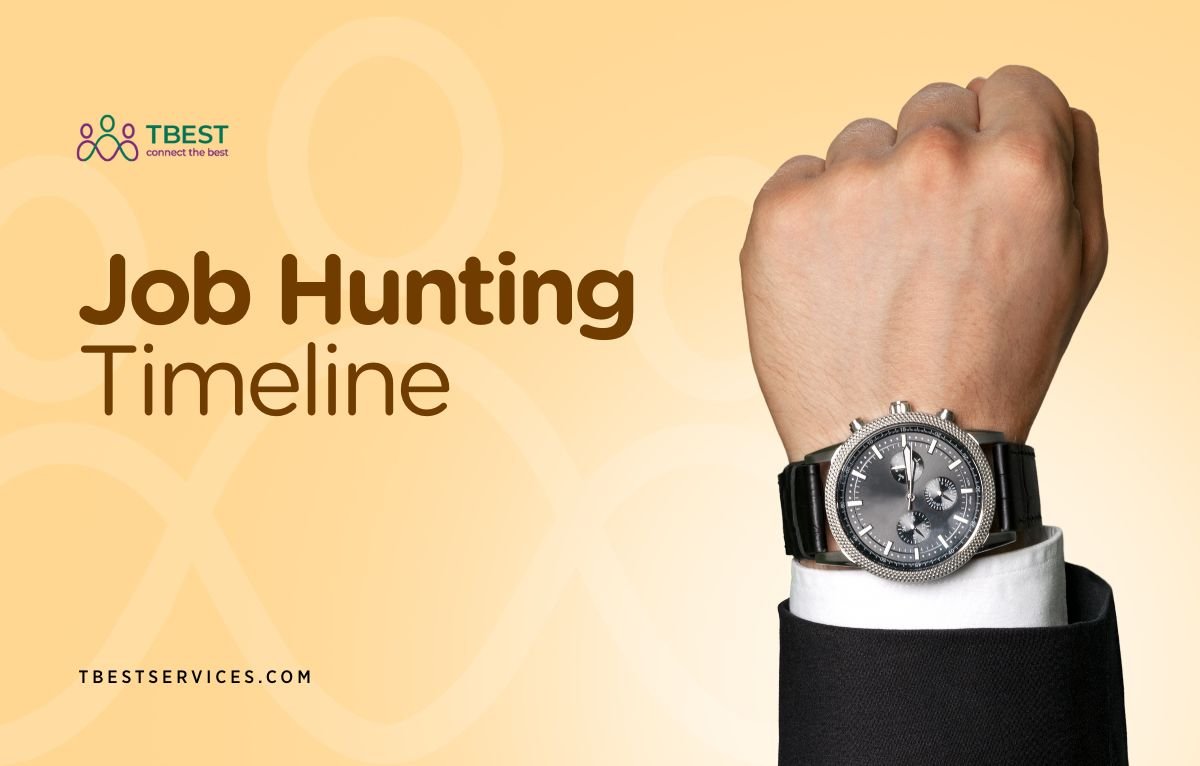
Searching for a new job can feel like walking into the unknown. You update your resume, fill out dozens of applications, and still find yourself wondering, how long does job hunting take? The truth is, there’s no single answer.
The process depends on a range of factors, including your industry, experience level, and the time of year. That said, understanding what affects job hunting timelines can help you plan better and reduce the stress that often comes with waiting.
Rather than going in blind, job seekers who understand the realistic duration of a job search tend to stay more focused and make smarter decisions.
This article explores the average length of time a job search can take, what variables influence the process, and how to position yourself for a faster, smoother path to employment.
Average Job Search Timelines
So, how long does job hunting take on average? According to various employment studies, the typical job search ranges from three to six months, although this can vary widely. For recent graduates or entry-level candidates, the timeline may be shorter due to the volume of available roles.
For experienced professionals or those transitioning to new industries, the process often takes longer due to more selective hiring.
Another factor is how frequently a job seeker applies. Someone who applies to one or two jobs per week may take considerably longer than someone submitting 10–15 targeted applications in the same time frame.
The more consistent and focused your effort, the better your chances of finding the right fit in less time.
Recruitment cycles can also be slow. From the initial job post to the final hiring decision, it’s not unusual for several weeks—or even months—to pass.
Hiring managers juggle multiple priorities, and internal processes can delay the decision-making process more than most applicants expect.
Key Factors That Influence Job Hunting Duration
Several variables directly affect how long job hunting takes. The industry and type of role are major influences; fast-paced fields like healthcare or skilled trades may offer quicker placement, while executive or niche positions usually involve multiple interview stages and greater competition.
Economic conditions and the time of year also matter; hiring slows in downturns and holiday seasons. Geography plays a role too, with larger job markets generally offering more frequent openings.
Another critical element is your professional network. Job seekers with strong connections or referrals tend to move faster through the process.
Lastly, the way you apply matters. Tailored applications that reflect the job description and showcase specific strengths will often outperform generic submissions in both visibility and success rate.

What You Can Do to Speed Things Up
Even though some aspects of job hunting are out of your hands, many aren’t. You can take smart steps to shorten the length of your search. It starts with a proactive, rather than reactive, approach.
Try these two actions to boost your visibility and improve your chances of landing interviews:
- Target your applications: Instead of applying to every job you find, narrow your focus to roles that fit your skills, experience, and goals. Quality matters more than quantity.
- Build a strong LinkedIn presence: Recruiters often scan profiles before scheduling interviews. Make sure your profile reflects your expertise, includes keywords for your industry, and highlights achievements.
In addition to these tactics, create a job search schedule that includes time for researching companies, updating your documents, networking, and applying. This structure will keep you from burning out or feeling overwhelmed.
Another critical step is to prepare for interviews well in advance. Practicing answers to common questions and having a portfolio of examples can improve your confidence and your performance when it counts.
Recognizing Red Flags and Stagnation
If you’ve been searching for months without getting interviews or offers, it may be time to reevaluate your approach.
Common signs of stagnation include submitting applications with no responses, failing to progress beyond initial interviews, or applying to roles misaligned with your experience.
Repeating the same resume and cover letter without updates is another issue that slows momentum.
When you notice these patterns, make time to adjust. Even small changes—such as a revised resume format, improved cover letter, or feedback from a mentor—can make a difference.
This is also an ideal time to explore working with a staffing agency that can offer expert guidance and connect you with employers you might not reach on your own.

Stay Mentally and Emotionally Prepared
The job search process can take a toll emotionally. The longer it drags on, the easier it becomes to second-guess your skills or lose motivation.
That’s why building mental endurance is just as important as submitting resumes.
Here are a few ways to maintain your energy:
- Take breaks without guilt: It’s okay to rest. Burnout only slows your progress.
- Set weekly goals: These give you a sense of progress, even without immediate results.
- Celebrate small wins: An email response, a networking connection, or even a completed application counts as forward movement.
It’s also helpful to stay connected to others. Join online groups or networking communities in your industry. Speaking with others in the same situation reminds you that you’re not alone and provides new ideas or leads.
So, How Long Does Job Hunting Take? Here’s the Bottom Line
If you’re wondering how long job hunting takes, know that the answer is flexible. While three to six months is a common range, your timeline will depend on how active and strategic you are, along with the current market conditions.
Staying informed, focused, and consistent will give you the best chance of landing the right role sooner.
And remember, you don’t have to navigate the process alone. Working with experienced recruiters or staffing agencies like TBest Services can give you an edge in today’s market.
From resume help to direct job placements, the right support system makes a meaningful difference.
Keep going. Your next opportunity is closer than you think—it just takes patience, strategy, and persistence to get there.
